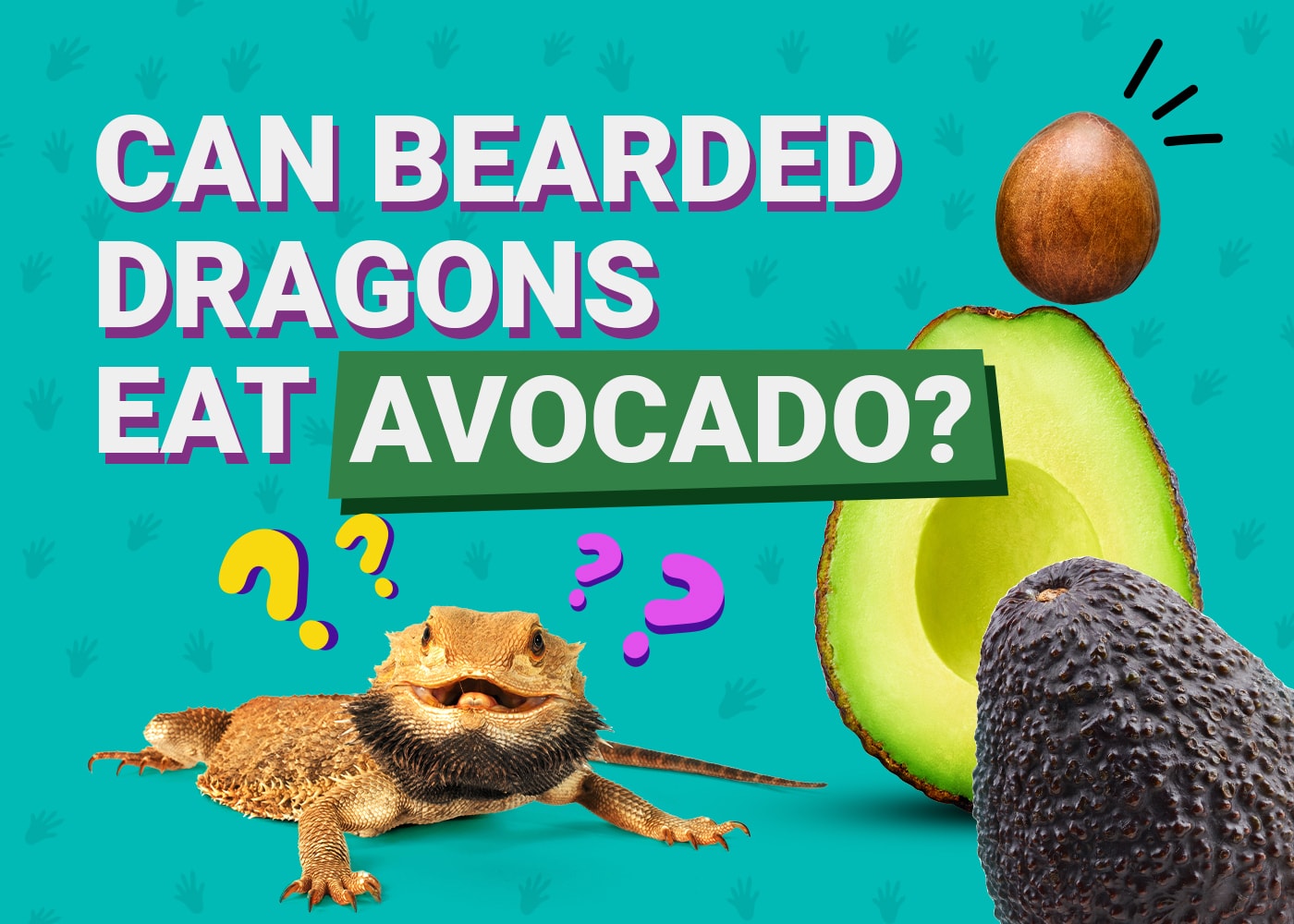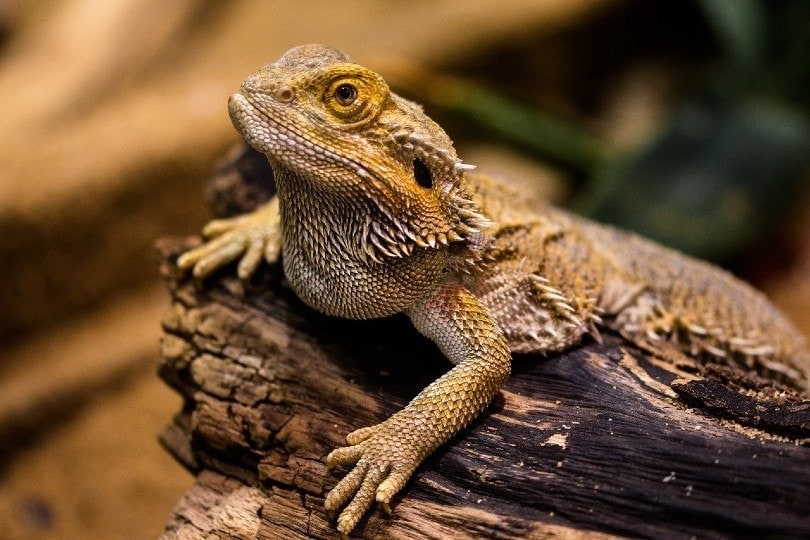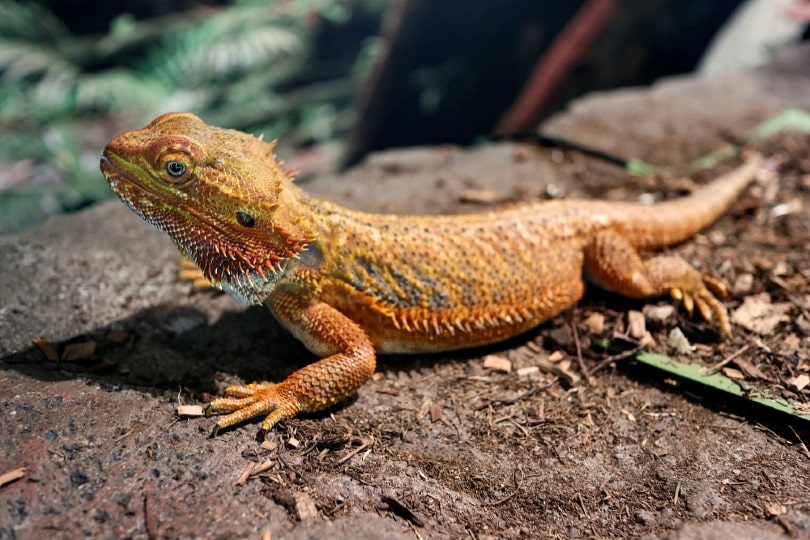
Celery is a versatile vegetable: tasty in soup or salad, and also a crunchy snack. But now that bearded dragons require a specific diet, is celery safe for them? Or, is this among the foods that should be strictly off your lizard friend’s menu?
Bearded dragons are omnivorous and can eat both insects and veggies, and celery is among the veggies bearded dragons love eating. These veggies primarily consist of water and have beneficial nutritional impacts, making it worth adding to your dragon’s diet.
Nutritional Benefits of Celery
Celery is safe for bearded dragons to consume. The nutritional benefits of this vegetable can be better appreciated after assessing its nutritional yield1.
From the above, the key nutritional takeaways are the following:
1. Hydration
Celery mainly consists of water, and since it can be a challenge for your lizard friend to stay well hydrated, celery can help with hydration.
2. Ideal Calcium-Phosphorus Ratio
Beardies require calcium and phosphorus for growth, development, and healthy bones. However, it’s essential to maintain the right calcium to phosphorus ratio. This is because excess phosphorus in some veggies can prevent calcium absorption into the dragon’s body, as it naturally binds to calcium.
For this reason, the bearded dragons must consume more calcium than phosphorus, a ratio that can be hard to achieve with some other veggies. Fortunately, celery contains the ideal calcium-phosphorus ratio.

3. Vitamins and Minerals
Celery has vitamins and minerals such as Beta carotene (vitamin A), vitamin C, and vitamin K; however, in small amounts. These invaluable components will strengthen your beardies’ growth, reproduction system, vision, and immune system.
It is worth noting that, unlike humans, bearded dragons can make their own vitamin C. However, in times of disease or stress, excess vitamin C is beneficial for your pet. Likewise, the bacteria that naturally colonize their large intestine produce vitamin K for them, however, when these bacteria are insufficient, supplemental vitamin K is beneficial for your pet.
4. Low in Sugar
One of the exciting benefits of celery is that it has low sugar content, which is good. Therefore, adding it to the menu will prevent your dragon from obesity and an upset digestive system.
Though often overlooked by owners, the sugar in many fruits and some vegetables may be a contributing factor to dental disease in bearded dragons.
- You may also be interested in: Can Bearded Dragons Eat Oranges?
Nutritional Risks of Celery
As healthy as it looks, celery isn’t perfect. You shouldn’t offer it to your bearded dragon if it’s cooked because once cooked, it is high in oxalates, also sometimes referred to as oxalic acid. Oxalates bind with calcium within the body and prevent its use. They may also predispose a bearded dragon to kidney stones, which require medical attention. The oxalate rating of raw celery is relatively low, and therefore, you should opt to feed your bearded dragon celery raw, not cooked.
How Bearded Dragons Should Eat Celery
Serve Raw
Serve raw celery instead of cooking because heat can remove the little nutrients in the vegetable and increase the undesirable oxalates. All you need to do is wash and chop into tiny pieces. Plus, beardies enjoy the crunchy feel in raw celery.

Break into Small Pieces
Cut your veggie into small chewable pieces. These will be more manageable by your pet.
Occasional
Although celery contains vital nutrients, it does not offer them in high enough quantities. Therefore, only feed celery once in a while as a treat food or snack. Instead, provide them with other highly nutritious foods they can use for growth.
Mix with Other Vegetables
You can serve only celery, however it is best to mix it with other foods. Or, you can dust in supplements too.

 Can Bearded Dragons Eat Celery Every Day?
Can Bearded Dragons Eat Celery Every Day?
As healthy as it looks, celery isn’t perfect. You shouldn’t make it a daily staple food for your bearded dragon because it is high in oxalates.
If oxalates combine with calcium, they could make your lizard friend have kidney stones. It is advised your pet eats celery once a week or month and in small portions.
Which Veggies Can Bearded Dragons Eat with Celery?
Check out some of the vegetables and fruits you can mix with celery to make that crunchy, healthy, and tasty celery salad for your beardie.
Conclusion
Celery is safe and healthy to include in your beardies’ menu as long as it’s in small amounts and occasional. And ensure that you serve it raw and in tiny pieces. Your pet will not only benefit from its nutritional value but will enjoy the crunchy texture while eating.
This veggie is especially vital if your dragon is obese and struggles with over-eating. However, since it does not contain enough nutrients, find your lizard friend other foods with far better nutritional value than celery.
Featured Image Credit: Pixabay



 Can Bearded Dragons Eat Celery Every Day?
Can Bearded Dragons Eat Celery Every Day?





